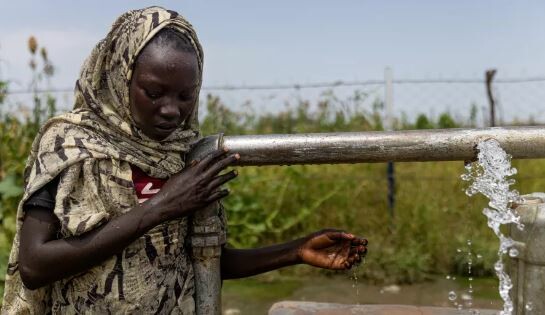Displaced individuals in Kosti town in Sudan’s White Nile State are facing a severe shortage of water supply in many of the sheltering houses.
This situation arises from the city’s frequent water cuts which have affected numerous suburbs and persisted for months. Some houses lack the necessary lifting pumps for accessing water from the main pipelines, while others face malfunctions in their connections.
Although the city is linked to a vast water network covering all neighborhoods, ongoing maintenance issues and electricity cuts have led to this crisis.
To cope, newcomers are turning to neighbors for assistance or resorting to purchasing water from carts and commercial water tanks.
Muhammad Yousif, an IDP who recently arrived from Khartoum and resides at the Al-Amal center, expressed significant hardships due to the water shortage. He said the center where he lives has been relying on the few households with access to water, requiring late-night queues and long trips to fetch water from distant locations.
He highlighted the challenge of purchasing water, citing the economic strain experienced by newcomers.
Despite reaching out to local authorities, including the local government, the Ministry of Social Welfare, and the Humanitarian Aid Commission, for urgent assistance, they have received no response. Yousif urged the state government to provide water tanks to the centers.
A man who only identified himself as Ezzoo who arrived from Jebel Awliya in October last year, also said they have to look for water from neighbors late at night, primarily for drinking purposes. He mentioned the necessity of skipping bathing for several days due to the high prices of water sold by vendors and called on local authorities to install water tanks within the centers.
Meanwhile, Abdul Baqi Ali, who resides in the El Kuru Secondary School Center, appealed to organizations and charitable institutions to support them and find solutions to the water problem. He described how they obtain water from neighboring houses but have faced prolonged cuts, experiencing water scarcity since their arrival eight months ago. He emphasized the challenge of accessing water due to its high prices, particularly during Ramadan.
It is essential to note that while the city is connected to a comprehensive water network covering all neighborhoods, malfunctions resulting from continuous lack of maintenance and electricity cuts have exacerbated this crisis.




